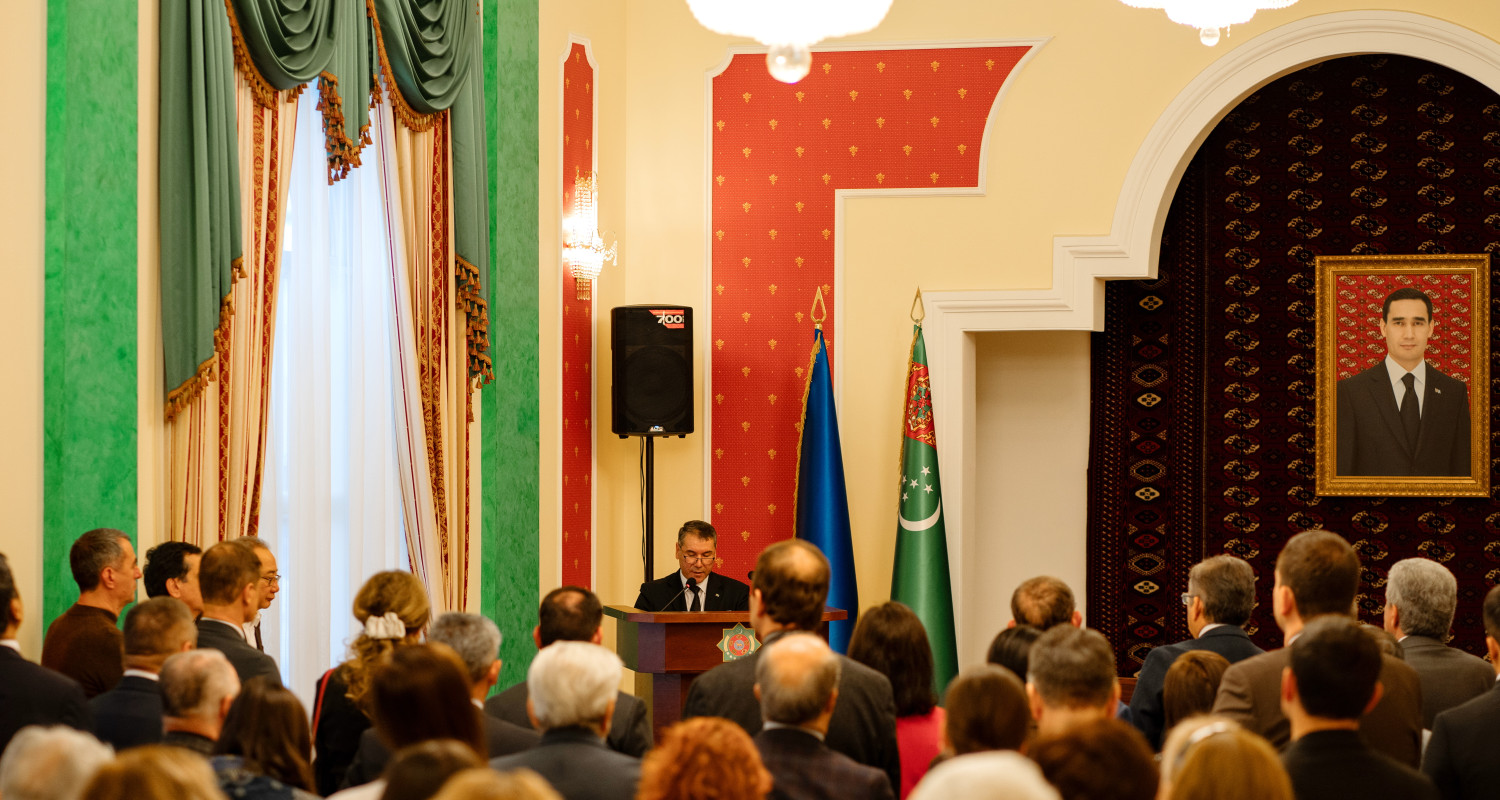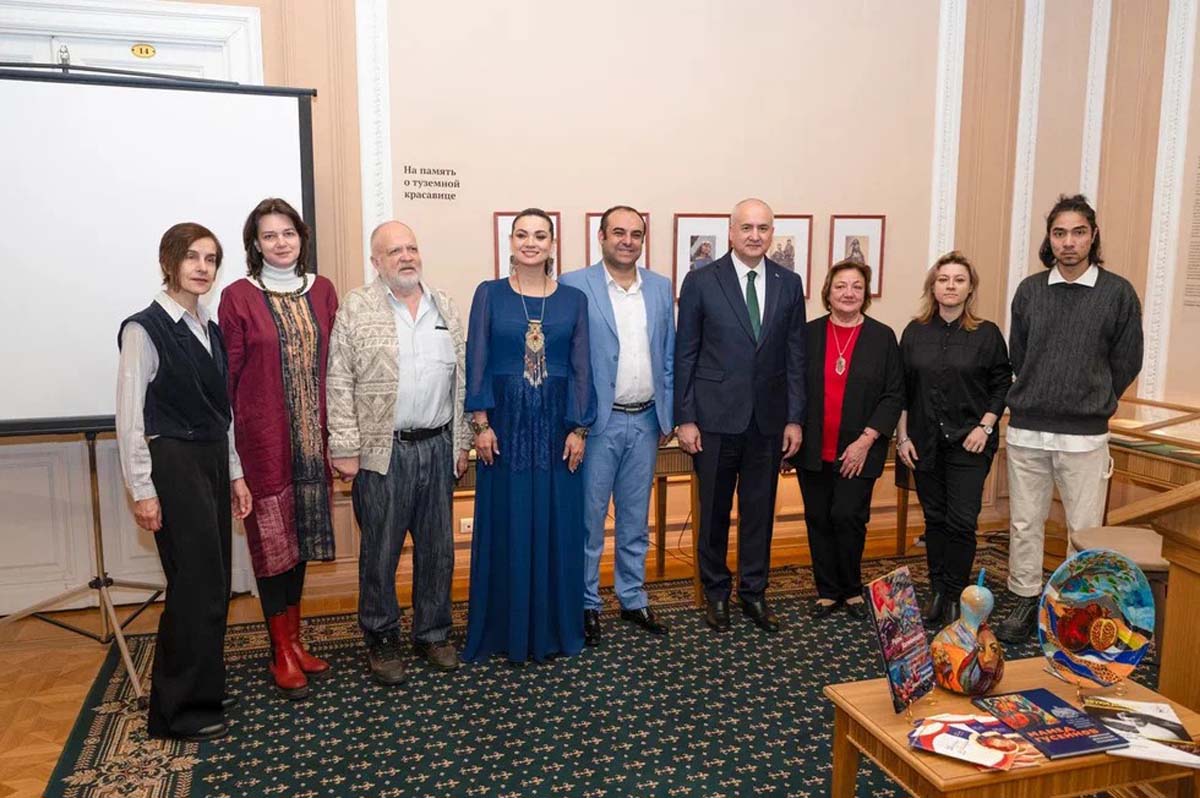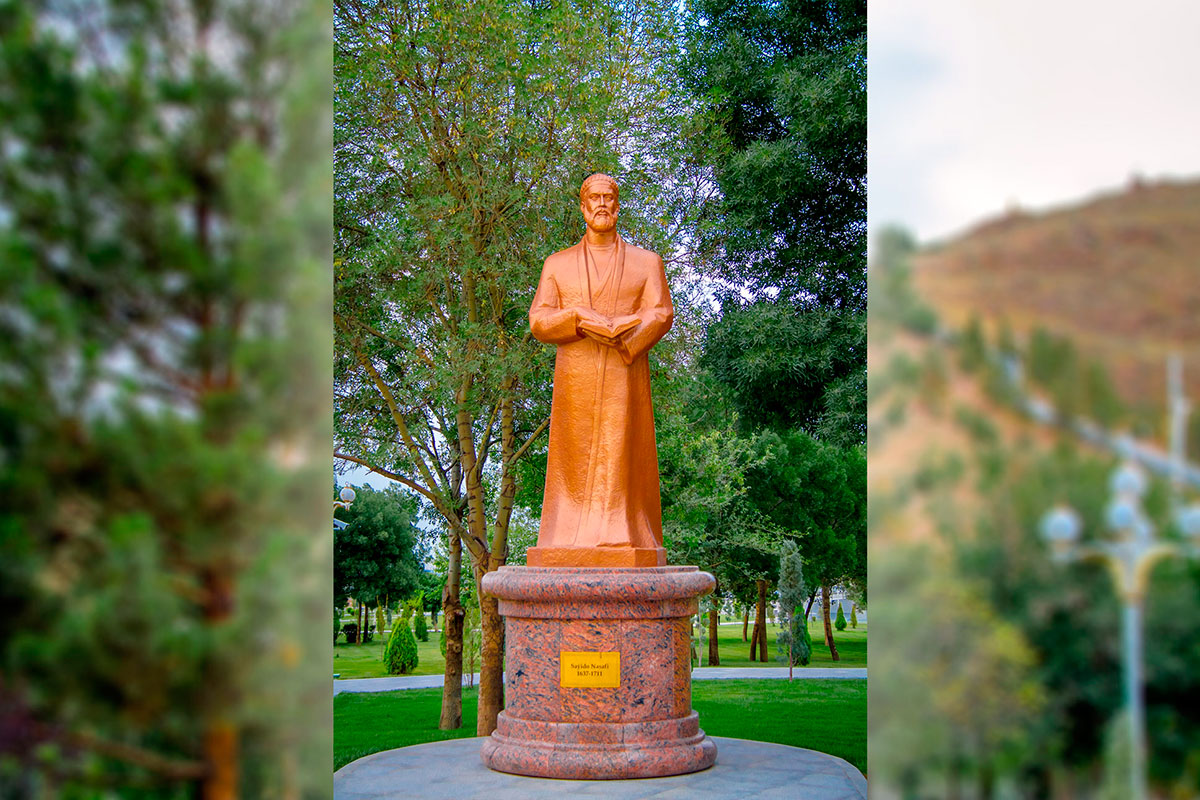It will not be a big discovery if we state that, like any other great personality, the personality of Magtymguly Fragi, his life and work have always been and are the same magical force that attracts the special attention of numerous foreign scientists and researchers like a magnet. Since the birth of the poet's first works, his poetic lines, the purity, clarity and beauty of the language, the unique manner of writing, the deep nature of thoughts, the philosophical coverage of the events of time have become that very magical the force that brought his work out of the strictly local poetic space into the wide orbit of world poetry.
Among historians and researchers of the poet's heritage, it is believed that Alexander Khodzko-Boreyko (1804-1891), a diplomat, orientalist, poet and professor, born in the village of Krivichi, Vileisky district, Vilna province (now Myadel district, Minsk region of the Republic of Belarus), a diplomat, orientalist, poet and professor, was one of the first who introduced foreign readers to the history of Magtymguly and his works. Traveling through the territory of present-day Turkmenistan, he wrote down the poetic texts of Magtymguly, translated them into English and published them in London in 1842. By doing so, he initiated the acquaintance of European residents with the work of the Turkmen poet.
A little later, following Khodzko-Boreyko, the Hungarian orientalist Arminius Vambery, who traveled through Central Asia in the guise of a dervish and personally became convinced of the incredible popularity of Magtymguly’s poetry among the people, noted that his collection of works is interesting for science only because it contains the purest sample of Turkmen speech. In 1863, Wambery, Assessing the role and creativity of Magtymguly, he wrote the following about him: "The highest pleasure for a Turkmen is when some troubadour (bakhshi) appears and sings a song of Ker-oglu or the almost deified Magtymguly to the sounds of his two-stringed dutar… He presents himself as a miracle worker who comprehended all the books, all the sciences of the world. His book will occupy the first place after the Koran for a long time." In 1871, Vambery took with him to Budapest a handwritten list of Magtymguly's poems, and after a while published some of them in Germany.
Vambery and Khodzko-Boreyko discovered Magtymguly to the world, however, centuries later, the magical magic of his poetry continues to attract the attention of European scientists and researchers of Oriental poetry today. The works of the classic of Turkmen poetry are translated into many languages of the world. In addition, European translators and publishers are honored to be the first to publish and publish books with poems by Magtymguly. This was the case, for example, in Italy, when Sandro Teti, CEO and founder of the Sandro Teti publishing house, and Federico De Renzi, a professor-turkologist, completing work on the first edition of Magtymguly’s works in Italian, said that it was a great honor for them to turn to the work of the great son of the Turkmen people Magtymguly Fragi and publish it works of art.
At one time, despite her advanced age,
Helga Dorosea Kors Kegel, a professor and translator at the University of Granada (she was 93 at the time), took up with great enthusiasm the translation of Magtymguly’s poems into Spanish. She did it. Translating lines of poetry is not an easy task, not everyone is capable of such a skill. Many researchers have mentioned the difficulty of translating Magtymguly’s works. Professor of Latin poetry Jacques Delille noted that "the accuracy of such a translation is very difficult." Few of the huge army of translators and poets who approached Magtymguly’s poems managed to preserve the power of meaning and at the same time the harmony of the rhythm of the original. For us, the descendants, all those translations are priceless, which bring spiritual pleasure not only to the Turkmen people, but also to other peoples of the world. And therefore, it is no coincidence that during the celebration of the poet's 290th birthday, Alejandro Munoz Kors was awarded the Magtymguly Fragi Medal of Turkmenistan for his work on the translation of poems by Magtymguly.
The power and power of a poetic word, and the depth of thoughts Magtymguly cannot but attract true lovers of poetry, no matter what distances and times separate them. And, if we talk about the distances and time of distribution of Magtymguly’s poems, it is impossible not to mention Eurasian scientists and researchers of the Turkmen poet's work. The same Russia learned about Magtymguly in the 19th century.
Among the Russian researchers, one of the first to become interested in Turkmen culture was Professor V. Glashev of Kazan University. In 1851, his notes on the Turkmens appeared in the Kazan Provincial Gazette. Here is what he wrote at the time: "Turkmens live in Transcaspia... The most amazing thing is that they have a rich literature, hardly inferior to the literature of European peoples… And Magtymguly is an eastern Mohican." The Russian writer M. Saltykov-Shchedrin also spoke highly of Magtymguly 's work, who called the poet an oriental Schiller.
In the magazine "Archive of Science and Culture of Russia" in 1855, an article "The Famous Poet" was published, in which Magtymguly was mentioned, and it was noted that his poems were written in Arabic, but they amaze with their lyricism and euphony. The Russian researcher F. Bakulin, who published several poems of the poet in translation, wrote that "the poet Magtymguly is held in special respect by all Turkmens, without distinction of tribes ...". Another famous orientalist, academician A. Krymsky, also considered Magtymguly to be a national poet of all Turkmens, whose personality is surrounded by legends.
In terms of spreading the creative heritage of Magtymguly, great merit belongs to Professor I. Berezin of St. Petersburg University, who in his work "Turkish Anthology", published in 1862, placed the poet's poem in the original language.
In 1911, a collection of Magtymguly's works was published in Tashkent, where poems in Arabic transliteration were presented. The publication was prepared by orientalist N.Ostroumov, and academician A. Samoilovich compiled an index to the songs of Magtymguly.
Almost simultaneously, in 1912-13, poems and articles about Magtymguly were published in Astrakhan and Orenburg.
However, the most significant are the studies of Magtymguly's works, which came from the pen of two scientists who lived in the poet's homeland. And the first of them should be mentioned the scientist-turkologist, professor, Honored Scientist of Turkmenistan Alexander Potseluyevsky (1894-1948). The Ashgabat earthquake of 1948 interrupted the life of the remarkable scientist-researcher of Magtymguly's work. Shortly before his death, the scientist published one of his serious studies - "Rhyme in the works of Magtymguly." On the same day
The professor prepared textbooks on general linguistics for students of the correspondence department of the Ashgabat Pedagogical Institute (now Magtymguly Turkmen State University). I am fluent in the Turkmen language, he impressed the audience with the depth of knowledge of Turkmen classical literature and oral folk art. He quoted Magtymguly's poems from memory, cited whole passages from destans.
Another scientist, the first director of the Institute of the History of Turkmenistan, G. Karpov, who lived in Ashgabat in the middle of the twentieth century, also could not ignore such a person as Magtymguly in his research. On the occasion of the 160th anniversary of the poet, he publishes his famous work "The Era of Magtymguly and Dovlet Mamed (oglu) Fragi".
It is impossible even to list those scientists and researchers in the former Soviet republics who would not have been attracted by the magic of the work of the Turkmen poet Magtymguly in one way or another. They have written hundreds of works about the life and work of the great thinker of the East.
The current young generation of Turkmen scientists is also in search of new discoveries related to the poet's work. So, during a recent business trip to Budapest, they discovered new information about the life and creative path of Magtymguly Fragi in the library of the Hungarian Academy of Sciences. They were particularly interested in the collection of documents of the Hungarian linguist-turkologist, ethnographer and traveler stored in the library's funds Arminia Vambery. Scientists have brought about 70 manuscripts on the history, culture and literature of the Turkmen people to the republic.
And today, another expedition of researchers from the Magtymguly Institute of Language, Literature and National Manuscripts of the Academy of Sciences of Turkmenistan is on a creative business trip to India in order to find new information about the era and creative path of Magtymguly. Nowadays, in the year of the 300th anniversary of the great poet, a wide variety of events are held almost daily in Turkmenistan within the framework of the year (2024), proclaimed under the motto " Fount of Wisdom Magtymguly Fragi ".
The works of the great classic of the Turkmen people have been translated into many languages of the world. His work gives spiritual pleasure not only to the Turkmen people, but also to other peoples of the world. At the same time, the poet's work reflects universal life issues. It seems that this is why his beautiful poems, which sound like a song and are absorbed by memory as wisdom, have the same attractive power that attracts and attracts new admirers and researchers.








